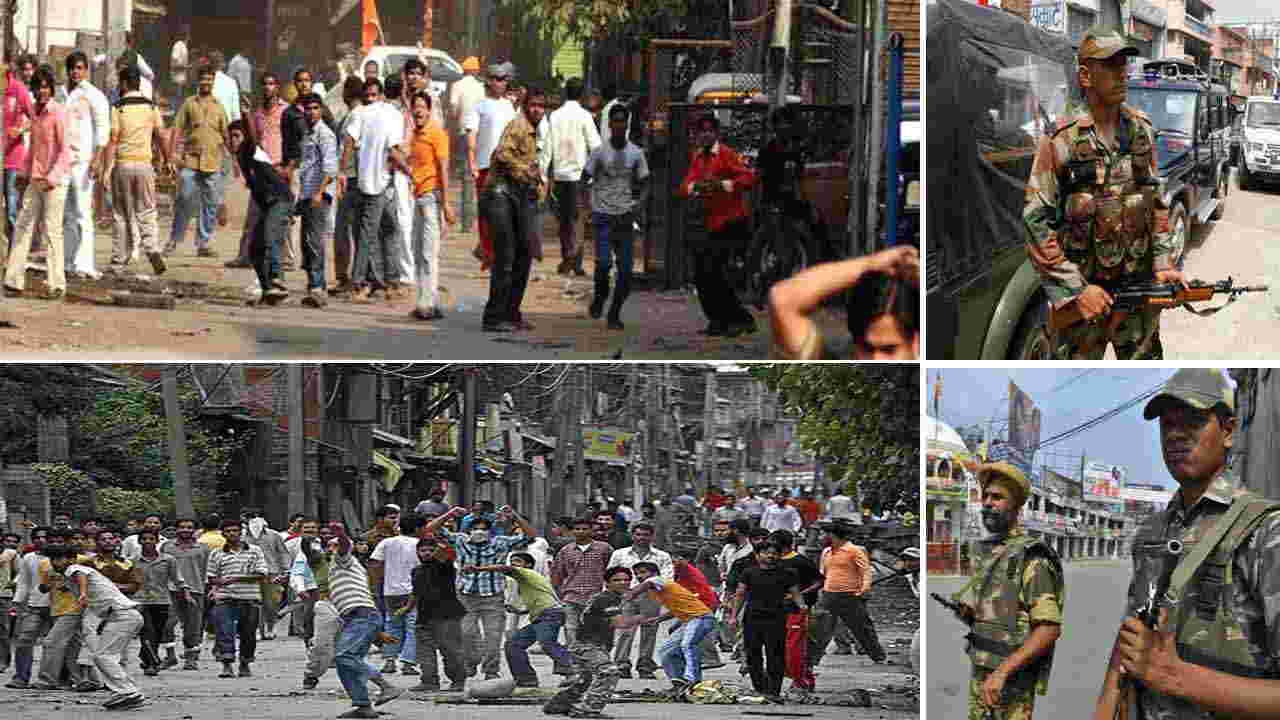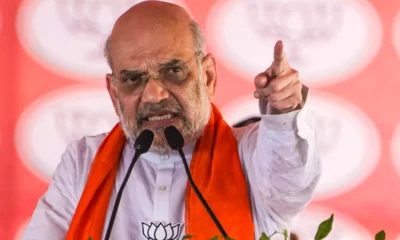[vc_row][vc_column][vc_column_text]Ranjona Banerji
And once again, India is heading towards what journalists of old used to call a “communal tinderbox”. Sectarian hatred, which sadly simmers below the surface across pockets of India, has once again started to find violent expression. This expression is usually related to political patronage – some Hindus feel that majoritarian rule is the answer for India whenever the BJP is in power. And in Bengal, there are claims that Mamata Banerjee’s Muslim appeasement policy has given strength to Islamist feelings in some areas of Bengal. Kerala is also going through some churn between the CPM and the BJP and once again the accusation is that various Islamic groups have free rein there: Hatred growing on hatred to destroy us all.
It is convenient for us to get stuck in the politics of it. That as if, had politicians not existed or did not pit one cause against the other, we would have loved each other desperately. The politics of it allows us to escape from the reality: That there is hatred, there is fear, there is a sense of historical injustice and there is insecurity. Almost all of it is illogical and unreasonable, almost all of it stems from ignorance and bigotry and all of it makes a mockery of our humanity.
History will show us that there is no one answer, there is no easy answer. Anthropologists will point to ancient atavistic impulses. Archaeologists will find old bones with evidence of extreme violence. Sociologists and psychologists will examine chinks in our relationships with others and with ourselves. They will all be correct. There is hatred in us and it will continue.
Do upbringing and experience play a role? Yet there are people who have suffered after the Partition riots and have tried to build bridges and there are those who have suffered and become filled with thoughts of revenge. The way some soldiers who have seen fighting and death become pacifists and others become even more dogged about military solutions to a conflict over all other ones. Does education make a difference? Clearly it does not, when you consider the number of educated terrorists of all political hues. Does being religious make a difference? This is the most tragic of all human beliefs when you consider that most extremist behaviour is justified in the name of religion.
We can accept that this is how we are and move on. Let law and order take each individual case and let the human constructs of evidence and justice deal with the consequences of human iniquity. Small individual steps to offset our human flaws. But this does not work on any grand scale.
The only thing that will make a difference is if law is matched with societal determination. Look at how Germany has tackled its anti-Semitic past. It was not the only nation in Europe which has persecuted Jews. The word “pogrom”, used loosely today for rioting and ethnic cleansing, is a Russian word meaning to “wreak havoc, demolish violently”, was specifically used for attacks on Jews. Across Europe, Jews faced everything from social discrimination to outright violence. Every kind of justification and lie to persecute any minority group today was used then.
But what happened in Nazi Germany with the cruel genocide of 6 million Jews in concentration camps was so bad, so horrific, that it became too much for the collective conscience of the Germans and of much of the world. Germany more than any other nation follows a very strict policy when it comes to anti-Semitism because it is always aware of its past. No solution is perfect but this is the one solution which has stood out as a beacon of hope and so it must.
Racism has not found such an easy solution nor has gender equity. Here in India, apart from the anger with minority religions that some of the majority Hindus have, we have still not managed as a society to acknowledge the terrible damage done to our fellow humans by the strictures of caste. We still look for justifications for dehumanisation, against and above the law of the land.
There is no easy answer and as long as we don’t honestly search for some as a society, we shall continue to be victim to politicians, religious clerics and other vested interests, to those whose power flows from creating and fostering hatred amongst us. We have reached that crossroads yet again. The last time someone tried to appeal to our collective conscience, we killed him. There is no Mahatma Gandhi today. There is only us. And we don’t look pretty.[/vc_column_text][/vc_column][/vc_row]


 Latest world news20 hours ago
Latest world news20 hours ago
 India News19 hours ago
India News19 hours ago
 Latest world news19 hours ago
Latest world news19 hours ago
 Latest world news20 hours ago
Latest world news20 hours ago
 India News19 hours ago
India News19 hours ago















